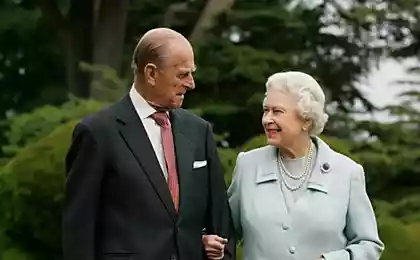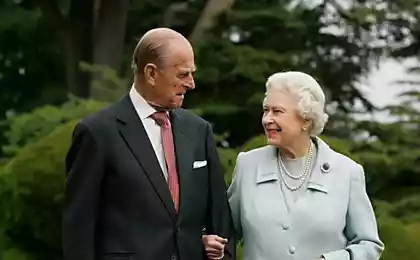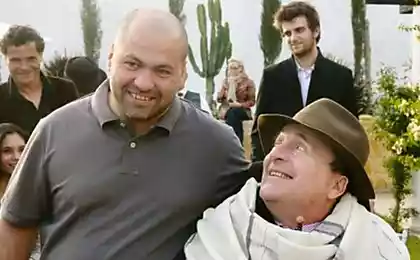598
Jean-Philippe Plateau on how Economics helps to get rid of the yoke of social norms
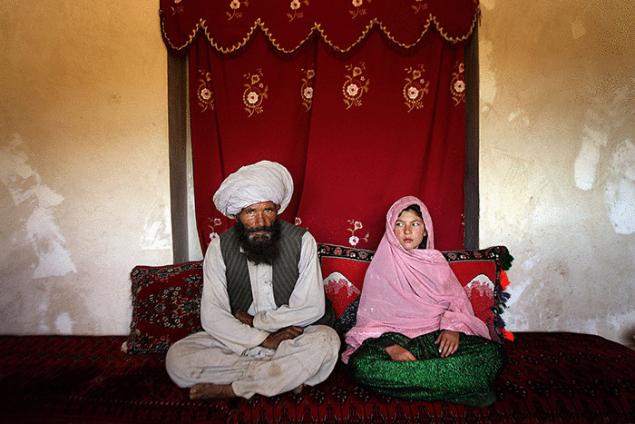
© Stephanie Sinclair
People's behavior is determined by norms in a particular society, as well as their expectations of the actions of others. System these settings directly affects the development of the state and world economies and, consequently, the quality of life. About how the world is trying to fight the yoke of social norms through economic opportunities in his lecture said Jean-Philippe Plateau, Professor at the Belgian University of NAMUR, Director of the Center for economic studies in development. Social norms and democratic tyranny
People are a kind of police each other. Before the meeting of the Central Committee Andrei Zhdanov on the situation in the Union of composers, Shostakovich was warned that things will not end, and his music will be condemned. Shostakovich replied that people in the Union, with the exception of some, — his friends who know he's a great composer, and he had nothing to fear. At the meeting, a proposal was made to consider the music of Shostakovich, Khachaturian and other decadent and bourgeois. When the majority voted for, Shostakovich could not believe my eyes. Deciding to raise your hand or not, each participant was asked a single question: "How will the others vote?". This does not mean that the music suddenly ceased to please them, just they came from the pessimistic views of the possible behavior of a neighbor. And since everyone thought that all will vote against Shostakovich, collectively decided that it would be quieter. Kind of mutual democratic tyranny.
A similar situation occurs in India, where women, widowed, cannot re-marry. Such religious norms do not exist, women themselves do not mind, but it still remains impossible due to the corresponding attitudes. If a woman violates her friends cease to communicate with her, since public opinion would also put them in a group of offenders — conditional "bad". For friends are friends of friends and so on. This process in Economics is called a meta-punishment: you can punish a man for what he communicates with someone, who, in turn, communicates with the violator of the norm. And this chain is infinite.
Of course, social norms may not only oppress, but to help development. The tradition of joint work on anything. But modern human activities are increasingly contrary to existing social attitudes. Yes, sooner or later, the oppressed, the rules disappear, the question is how much time it requires whether you need additional or special effort on the part of governments, which could speed up the process, and the role of the organizations protecting human rights. The last topic in every way pedaliruetsya, particularly organisations from Western countries, who believe that human rights are (directly associated with the concept of social norms) should be protected by law. But is this approach constructive?
Tradition vs development
The term "development" means expansion of the range of opportunities that help individuals better realized. It is about the opening before the people the additional capabilities, not only from the point of view of financial well-being. Economists typically consider as a way to increase economic mobility and reduce poverty. Inequality is not declining: the gap in earnings remains the same. But we have seen how the former concept of poverty is meaningless, that there is economic growth.
Thus, development is, by definition, focused on the person, but this approach is not to everyone's taste. Against him were the people with the traditional perception of the world, accustomed to think in the collective paradigm to survive in the face of external challenges that, in their opinion, are the threat. The history of mankind for the last four centuries confirms this. Empowerment is a multilateral process. Therefore, the statement about economic growth is true only taking into account the potential deprivileging groups: former slaves, immigrants, women, homeless and so on. The effect of economic growth gradually reaches people at all levels in those cases when they all have access to new opportunities and freedom. That is, we need an inclusive global model consisting of all segments in all regions of the world. If any remote areas are completely excluded from the process of economic development, this effect will not be there to be observed.
God-man and the strength of the team
Give examples of socially oppressive norms. The first is the foot binding of girls in China. This rule is entailed ulcers, paralysis, gangrene, necrosis, 10% of Chinese girls going through this procedure, died. The tradition originated thousands of years ago as a guarantee of exclusive possession of men of the aristocracy of his wives. The Emperor began to imitate the people from his closest environment, gradually the practice came to the lower social strata. It reached its peak in the Ming dynasty and has survived until the XX century. The question arises why only then was it canceled? Yes, there were movements for women's liberation. But most importantly I think that the 30-40-ies of women in China was actually enclosed the houses of his bandaged legs was not a problem, because they are not particularly moved. But there is active development of production, there was a need to leave home to earn money. Women need healthy legs. So practice bandaging has become an obstacle to normal life, and hence improve wellbeing.
A Patriarchal society is directed against the weak: women, slaves, migrants
A second example of the oppression of social norms is female circumcision, which is widespread in Africa. The reason is the same: the desire to preserve the purity of women, so that between it and the God-man, there were no obstacles. Some believe that it is the idea of Islam, however, this procedure was invented in dailamites the days of slave-owners who drove the women in the Arab and Egyptian markets. Such practice is very common so far: it is believed that up to 28 million modern women in Africa were subject to circumcision. In Senegal and now uncircumcised woman can not allow to bring food or water to man.
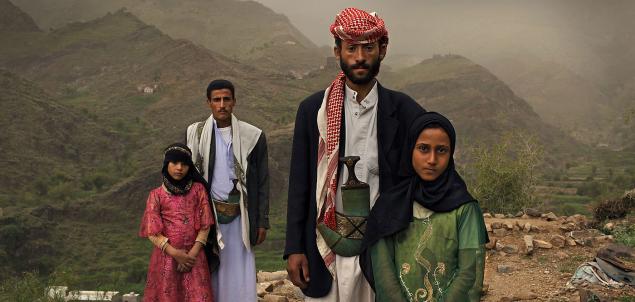
© Stephanie Sinclair
Another example of oppression, early marriage where girls are married off at 13-14 years. Thus the man can easily divorce a woman what to do is extremely difficult. We see this in Muslim countries: Afghanistan, Pakistan, it's very common. Another problem is the vendetta. In some parts of the former Soviet Union (Moldova, Kyrgyzstan) still have the practice of bride kidnapping, when a man takes a woman, rapes, and after coming to her parents with a request to give her for a wife. Parents are forced to accept a rapist as a son-in-law and to force the girl to marry to avoid shame. Traditional practices have collective power. People don't think of how to protect one person, including themselves, they think how to protect the family honor, clan.
Tradition and authority
There is opinion that tradition is the result of a certain transaction. If the person who enters into the struggle for the land, not strong enough, he concedes, and the earth get a strong family. Usually the observance of traditions is watching the face, the power of reproof. They can be a Mullah or local priest that determine whether to comply or not to comply with a particular rule. The problem is that if society is Patriarchal, it is directed against the weak side: women, slaves, migrants.
The head on the ground are the defenders of traditions. They know that if too many members of the society decide to abandon the traditions of the first in this society, they lose themselves. Rulers understand very well that their social prestige depends on the jurisdiction, that is, the number of people who want to hear their opinion. If they stop turning, they conclude that their power is evaporated. In other situations, if the local positions of authority, one sees that economic opportunities can improve the situation, and if he wants it, he may gradually change and tradition.
So built another system, which I call legal dualism. He means the choice to leave the city and find prosperity there, or to stay in his native village. The problem is that the weaker members of society more addicted to the habits and traditions, and this will be their negative reaction to the possibility of economic development. However, the question is whether local authorities are ready to change the situation. The fact that the laws of large cities can have a positive impact on rural communities by sending certain trends. The views become more progressive and society takes into account the interests of its weakest members. But as you know, in the world there are many economic opportunities, beautiful laws in the city, which do not affect the traditional power in the villages. This arises in cases where local authorities strongly oppose their adoption.
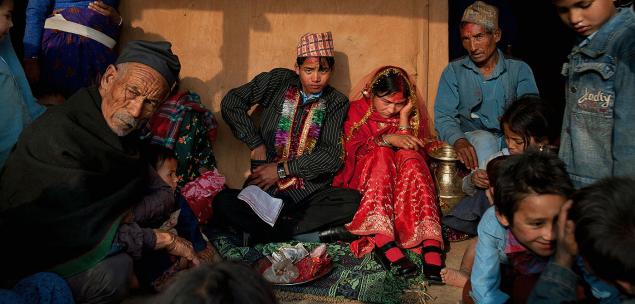
© Stephanie Sinclair
So, the government of Ghana tried to change the inheritance law to consider the interests of widows and children in terms of their Patriarchal system. Some innovations have not changed the b tradition, but under the influence laws, the system could evolve towards the interests of widows and children. Thus, progressive legislation can work for the entire population.
The problem of coordination
Economic opportunities gradually affect common traditions. I have 30 years of travel around Africa and see major changes. It may not be reflected in official statistics, but today, many women can obtain a divorce, which did not exist at all, even if her husband beat a woman. The reason for new economic opportunities. A woman can leave the city, find a job and feed yourself. In the conservative environment of Turkish immigrants in Brussels, many women also began to decide on a divorce. Another very striking example is the growth of love marriages in comparison with marriages in collusion parents. The number of crimes on the grounds of protecting the honor of the family is also declining.
Unfortunately, it is not widespread process. Many people simply do not know about the new laws and potentials. For example, in the Muslim areas of Northern Ghana, the situation with education is much worse than in the South. Viktimisierung members of the group may also assume that all the new laws and opportunities are not for them. So, men, for example, actively advocate the abandonment of the practice of female circumcision. Women are often hesitant to abandon the oppressive traditions.
For example, the father daughter got married in 9 years, and by law he cannot do it until 18. In most cases, when we ask them why don't you turn to the law, women believe that it is impossible to make such issues public, because they're embarrassing and betraying my family. It is a psychological barrier. They say that support for the law to punish them in the most brutal way: deprive of children, of all social contacts. This means that the price of going to court and new opportunities for them is very high. Returning to the law of inheritance: if you will visit in Ghana today, you will see that nothing has changed. Power back in the hands of men, and any woman or child who tries to access the protection of modern law will be declared "bad" Muslims or not Muslims at all. The economy can influence the situation, but sometimes it turns out that nobody wins.
There is a problem of coordination. Imagine a community in which some norm is not liked by everyone, but she still adhere to. Such paradoxes are, and perhaps you have experienced this. First, such a network of mutual punishment generated by the society, applies to everyone. Second, in humans, there are the most pessimistic expectations from the behavior of others: he simply does not believe that the rule is not like all the rest. So people can support an oppressive system because it, in their opinion, to support others.
The human rights issue in developing countries is associated with the fear of Westernization
Thus, a social norm is a social agreement with the formulation "do all". It works sequentially: if someone something does not, it is in isolation. To change this situation is to cooperate. Therefore, NGOs in Ghana are promoting the concept of public declarations and communicate with people in the villages explain that circumcision is harmful to health, and the like.
Social norms and the struggle for human rights
But it's not so easy in a situation with traditional countries. In Ghana, after a total of 104 public declarations of the leader of the villages said they wanted to get rid of the yoke of the rules of circumcision. But this also changed nothing. People see something more in their practices, they are more committed. The West on their own criteria to decide what is bad and what is good, so the oppression of social norms remains. For example, migrants who live in Paris, continue to circumcise their own daughters, even though they have all the economic opportunities. A change of habits, not living in their country, but if, on returning home, these people will start to act to change traditions, they will be perceived as renegades. In Pakistan, Turkey, India most of marriages is in agreement: the boy's parents continue to choose him a bride. People emigrate, but still cling to their standards and relationship with the society from which they came.
Thus, the issue of human rights in these countries is very often linked to the fear of Westernization. Returning migrants bring new rules, but the locals perceive them as cultural aggression. What we believe the struggle for human rights, the situation worsens due to the growth of cultural resistance. For example, in Senegal, I think, ceasing to circumcise their children, you "Zapadnaya" society, refuse from the roots. The norm is a symbolic component, and the essence of the uniqueness of identity. Therefore, the governments of those countries behave cleverly. In Senegal in 1999, a law was passed, criminalizing the circumcision of women. But then the Prime Minister, speaking in Parliament, said that this law will not apply. That is, they accepted him for the kind and warned people about that.
A gradual change of the foundations
The question arises why, given all these factors, the traditional marriage arrangement of the retreat, and female circumcision in Senegal, on the contrary is now held at an earlier age? Despite the fact that marriage for love was not part of the traditional culture, they cause less resistance. Gradually the children are better able to negotiate with your parents: last feel that the position of the children in this dispute from growing.
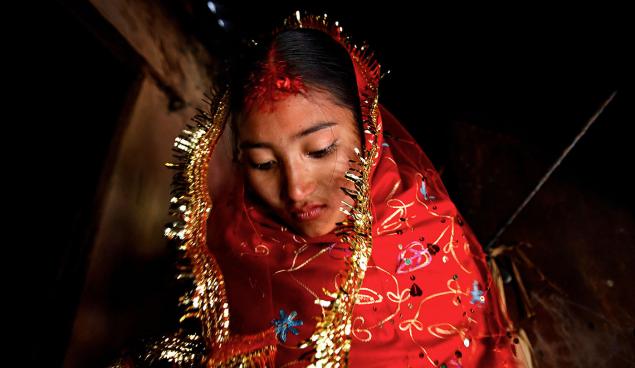
© Stephanie Sinclair
The gradualism that can provide the economy. When changes occur too quickly, the result can wait no longer. For example, the young Turks advocated the Europeanization: they tried to change the culture not only urban and upper strata of society but also the masses, including the peasants. Spicy very devout: under such a direct attack on the religious mentality in the country, people began to turn to his Holy like the Catholic would appeal to the virgin Mary for healing her child. The struggle led to a strong opposite effect: a significant part of the population was alienated. In Afghanistan too, there are plenty of similar examples. One of them is the Taliban. When people think that they impose some values, this leads to a response. This is a profound social antagonism between the leaders and the middle class residents of small towns and provinces.
So always in history, the new rules appear gradually. And it happens only when one of the parties brings new arguments in an old dispute, which is very important for understanding the capacity of the economy to reduce the oppression of social attitudes. Rules that you can not win a frontal attack, you can gently and slowly work around. When people feel pressure from outside, the imposition of foreign values, they typically begin to act on the perspective, as the Ghanaians began to carry out the circumcision of little girls who are not yet able to defend themselves. After some processing time too radical laws over time, soften, and society step by step adopts new rules on the way to economic opportunities and growth.
Source: theoryandpractice.ru
Fungi of the genus Cordyceps – those that turns insects into zombies
Created new method of efficient capture and analysis of cancer cells






